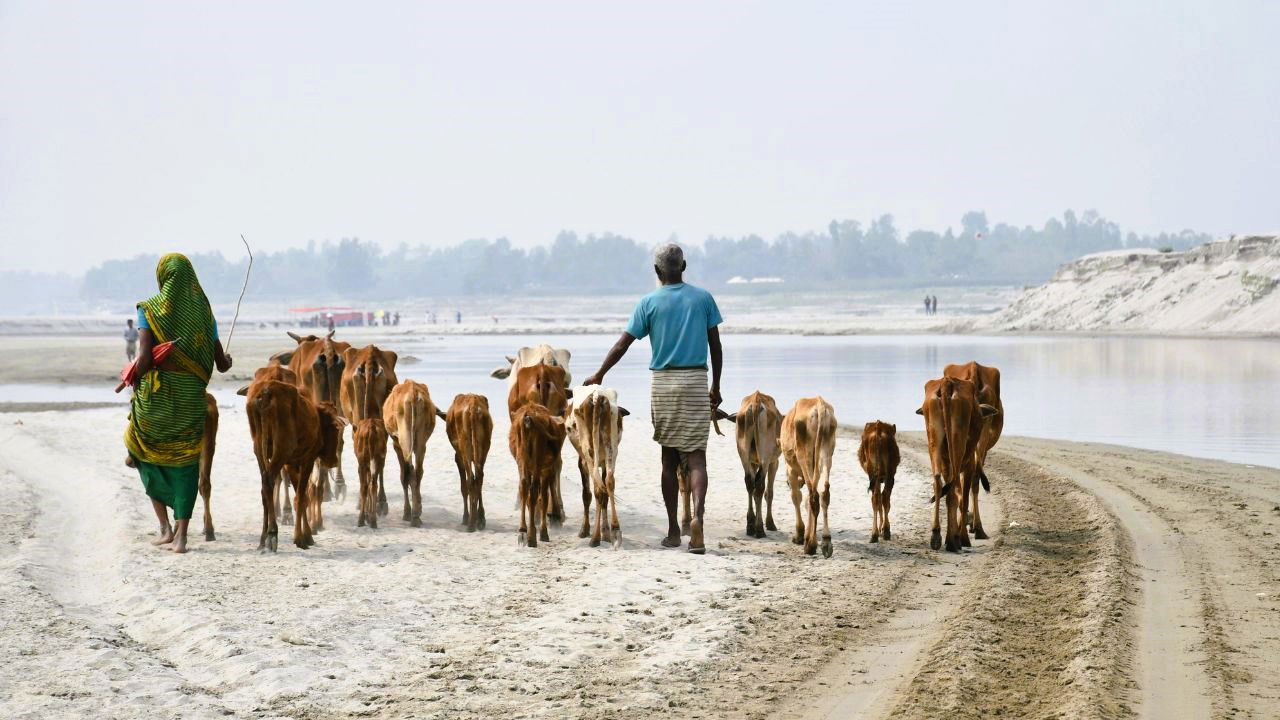
Under the Chairmanship of Secretary, Department of Animal Husbandry and Dairying (DAHD) Alka Upadhaya, a webinar was organised on September 05, 2024, for the convergence of schemes of Department of Animal Husbandry with SHG members in National Rural Livelihoods Mission (NRLM). It was a joint effort by both departments to enhance the reach out of the schemes of Department of Animal Husbandry with the SHG members of NRLM and supported by the Additional Secretary, Ministry of Rural Development Charanjit Singh. A total 9500 members participated in webinar.
Upadhaya stressed the need to increase the productivity of cattle in the dairy industry and mentioned that small ruminants, such as backyard poultry, pigs, goats, and sheep, are also a source of food and revenue for women living in rural areas. As a result, encouragement is given to rural women to pursue entrepreneurship.
She also said that insurance of livestock is being promoted and subsidy on premium given by DAHD. However, there is a lack of awareness and lack of clarity in addressing claims of insurance which is causing hindrance in its implementation. There is an opportunity for pashusakhis to get required training from the Insurance Companies to become their agents/sub agents and not only create awareness among SHG members about insurance but also act as insurance agent to provide support SHG members, she said.
Other initiatives include vaccination for the preventative health of livestock, for which the government runs programs like NADCP/LH & DC, where farmers' villages serve as vaccination sites. She discussed zoonotic diseases, or illnesses that can transfer from animals to humans, and stressed the need for public awareness of these conditions. She also voiced the belief that DAHD and SHG collaboration could be very beneficial in the long run, and that we should support these kinds of initiatives.
According to Charanjit Singh, the most popular activity among SHG members is animal husbandry, which may also be one of the ways to help them reach the annual income of over one lakh that the Lakhpati program aims to provide for SHGs. Any activity related to conserving fodder could be included in an entrepreneurship model.
He reported that 1,30,000 pashusakhis had received training, 90 lakh SHG families were already receiving support from NRLM in the livestock sector, and 4 and 11 milk production firms were operating nationwide. He emphasized the need for additional SHG members and more businesses of this type. Additionally, he thought that these kinds of exchanges with SHG and DAHD ought to go on in the future.
The DAHD representatives gave an explanation of the National Livestock Mission's business opportunities in pigs, sheep/goats, and poultry. How can these plans assist members of SHGs? They also provided thorough information on livestock insurance plans, entrepreneurship in fodder conservation, and the manufacture of fodder seed.
New measures have been implemented in livestock insurance, such as the substitution of RFID for ear tags and an increase in premium subsidies of up to 85% of the total premium.
















